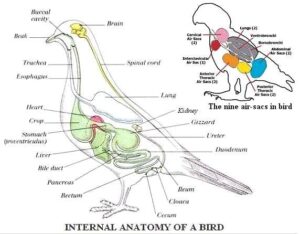Back to: ZOOLOGY 300 Level
Welcome To Class!
Hey there, my brilliant friend! I’m excited that you’ve joined us today because we’re going to dive into how your body works to keep you alive and well. The circulatory system and the excretory system are both crucial for maintaining health. Without these systems, our bodies wouldn’t function as they should. So, let’s get started and see how these systems work to keep everything running smoothly.
Circulatory And Excretory Systems
The Circulatory System: The Body’s Transport Network
The circulatory system, often called the cardiovascular system, is responsible for transporting oxygen, nutrients, and hormones throughout the body. It’s like a delivery service that keeps all your organs supplied with what they need.

- Main Components:
- Heart: The heart is the central pump of the circulatory system. It beats constantly to pump blood throughout the body.
- Blood vessels: There are three main types of blood vessels:
- Arteries carry blood away from the heart. They have thick, strong walls to handle the high pressure of the blood being pumped out by the heart.
- Veins carry blood back to the heart. They have thinner walls than arteries and contain valves to prevent the blood from flowing backward.
- Capillaries are the tiny blood vessels that connect arteries and veins. They are where oxygen, nutrients, and waste products are exchanged between the blood and the cells.
- Blood Flow: The heart pumps blood to the lungs, where it picks up oxygen, and then it pumps oxygenated blood to the rest of the body. Deoxygenated blood is brought back to the heart, and the cycle repeats.
- Importance of the Circulatory System: Without this system, oxygen and nutrients would not reach the organs, and waste products like carbon dioxide would not be removed. It’s the lifeline of your body, ensuring everything functions properly.
The Excretory System: Removing Waste from the Body
The excretory system is responsible for removing waste and excess substances from the body, helping to maintain homeostasis (balance). This system ensures that harmful substances like urea, toxins, and excess water are eliminated to keep the body in a healthy state.
- Main Components:
- Kidneys: The kidneys are the main organs involved in filtering blood. They remove waste products and excess substances, which are turned into urine. The kidneys also regulate the balance of water, salts, and pH in the body.
- Ureters: These are tubes that carry the urine from the kidneys to the bladder, where it is stored until you’re ready to go to the toilet.
- Bladder: The bladder stores urine until it is ready to be excreted from the body.
- Urethra: This is the final tube that carries urine from the bladder to the outside of the body.
- How It Works: The kidneys filter the blood, removing waste products like urea (from the breakdown of proteins) and excess water. The filtered waste is sent to the bladder, and when the bladder is full, the urine is released through the urethra.
- Importance of the Excretory System: The excretory system helps to get rid of substances the body doesn’t need, preventing the buildup of harmful waste. It also helps in regulating blood pressure and electrolyte levels in the body.
How the Circulatory and Excretory Systems Work Together

The circulatory and excretory systems work closely together to maintain the body’s internal balance. The blood that flows through the circulatory system is constantly being filtered by the kidneys, and waste products are removed from the body through the excretory system.
- The circulatory system brings blood to the kidneys, where waste is filtered out.
- The excretory system gets rid of the waste by turning it into urine, which is then excreted from the body.
- Together, they ensure that your body stays clean and healthy, removing toxins and providing the organs with the resources they need to function properly.
Summary
- The circulatory system is responsible for transporting oxygen, nutrients, and waste products throughout the body, with the heart, blood vessels, and blood playing key roles.
- The excretory system helps remove waste products like urea and excess water, using the kidneys, ureters, bladder, and urethra.
- The circulatory and excretory systems work together to filter the blood, remove waste, and keep the body in balance.
Evaluation
- How does the circulatory system transport oxygen to the body’s organs?
- What is the role of the kidneys in the excretory system?
- Describe the path urine takes from the kidneys to the outside of the body.
- Why is it important for the circulatory and excretory systems to work together?
- How do the kidneys help maintain the body’s balance of water and salts?
Well done, my friend! You’ve just learned about two of the most important systems in the body: the circulatory and excretory systems. These systems work hand in hand to keep you healthy and ensure everything in your body functions properly. Keep up the amazing work, and remember, Afrilearn is here to guide you every step of the way. Can’t wait to see you in the next lesson!
